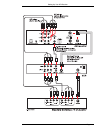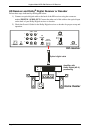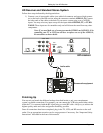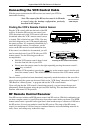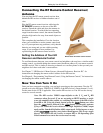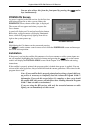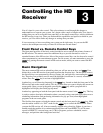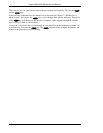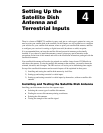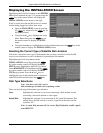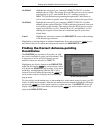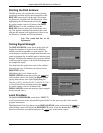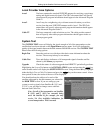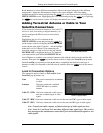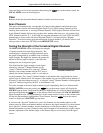
Page 4-1
Setting Up the
Satellite Dish
Antenna and
Terrestrial Inputs
There is a cluster of DIRECTV satellites in space, and, just as a telescope is pointed at a star, you
need to point your satellite dish at the satellites. In this chapter, we will explain how to configure
your receiver for your satellite dish antenna, where to point your satellite dish antenna, and how
to configure your receiver for analog or digital terrestrial (broadcast or cable) reception.
It is recommended that you have the satellite dish and terrestrial antennas professionally
installed. If you choose to install the antennas yourself, please pay special attention to the
precautions in the front of this manual and refer to the installation instructions packaged with the
satellite dish antenna.
Your satellite dish antenna will need to be pointed at a satellite cluster located 22,300 miles in
orbit above the equator. To aim the satellite dish antenna at the satellites, you need to know the
azimuth, elevation, and tilt angles. The HD receiver will assist you in determining these angles.
Set-up of the satellite dish antenna and terrestrial inputs will be explained in three parts:
1) Installing and testing the satellite dish antenna by itself first.
2) Setting up and testing terrestrial or cable inputs.
3) Setting up and testing terrestrial or cable inputs by themselves, without a satellite dish
antenna.
Installing and Testing the Satellite Dish Antenna
Installing your dish antenna involves four separate steps:
● Selecting the correct type of satellite dish antenna.
● Finding the correct dish antenna pointing coordinates.
● Pointing the dish antenna.
● Testing the strength of the satellite signal.
4



